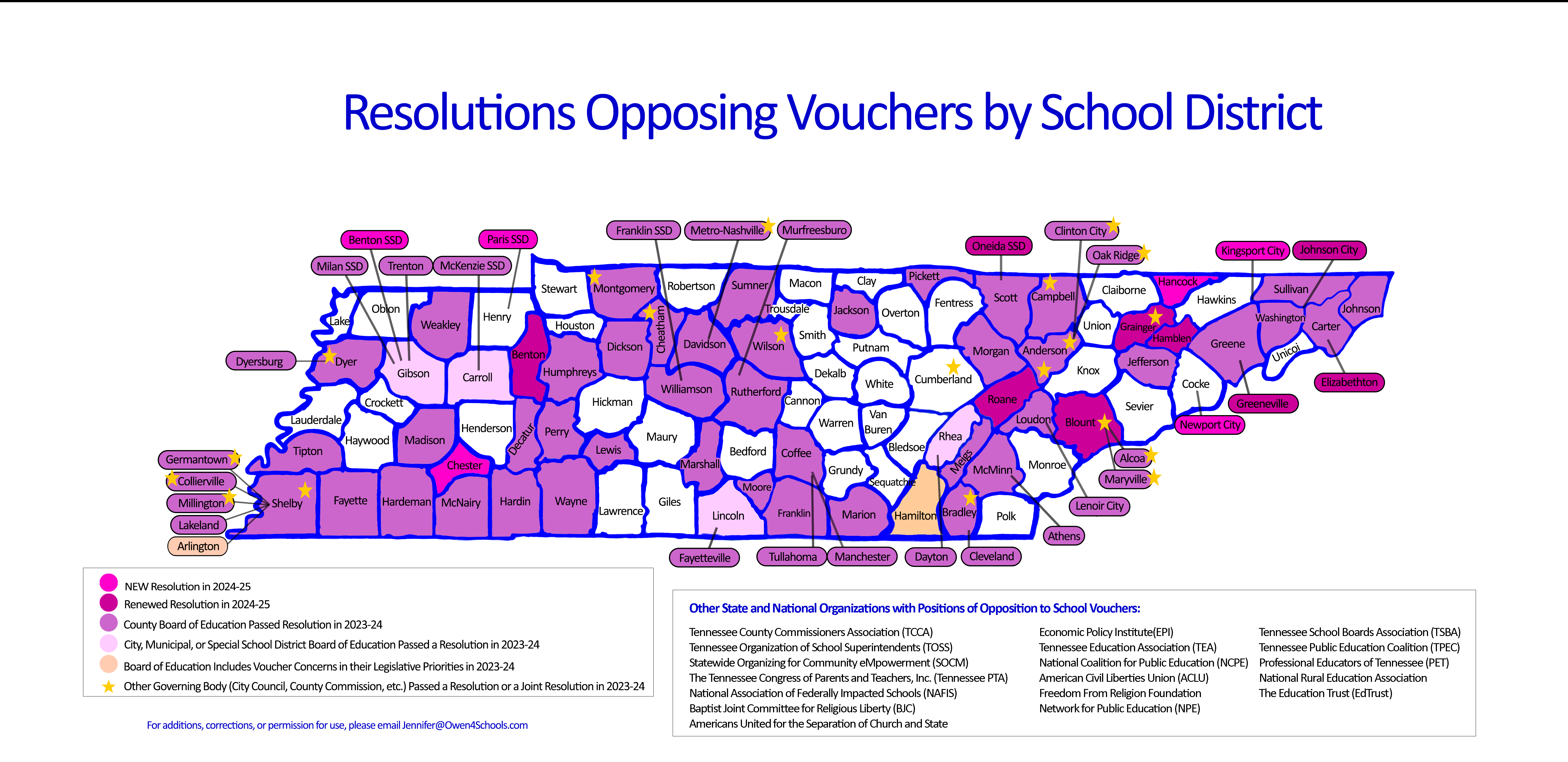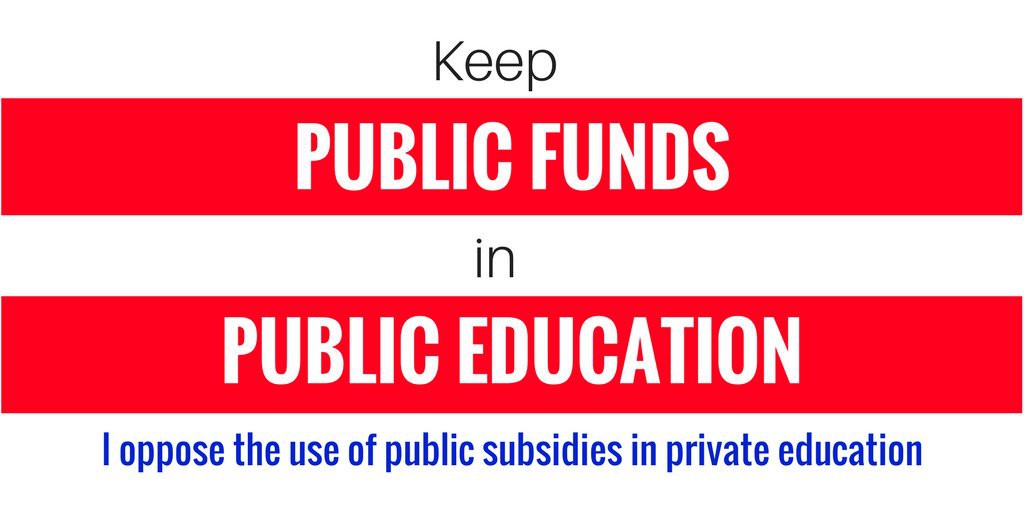Our school board chose not to hear from me regarding important pending legislation during monthly legislative updates – and not to allow YOU to hear from me. Our communities deserve to know about legislation and pending legislation that impacts our public schools – and I will not stop bringing you that information.
I will ALWAYS do everything I can to help YOU access to information that impacts our public schools. I will continue to attend legislative committee meetings both in person and via live stream and to visit legislators in their offices to share your questions about pending legislation.
When you have questions, please don’t hesitate to email or call me:
Jennifer@Owen4Schools.com
(865) 919-1998
UPDATES FOR MARCH 18, 2024
Legislative subcommittees are beginning to close for the year, so we can expect things to move very quickly from here out. Legislators seem eager to pass as much as possible with as little discussion as possible – and it is sadly obvious that even some well-seasoned legislators don’t know what their own bills say.
If you have concerns, Legislators need to know!
BILL TRACKER
My current bill tracker (in progress) is here: TPEC Bill Tracker – March 2024 – Owen.xlsx
This is a live document and may be updating as you view.
Please let me know if corrections need to be made.
LOTTERIES – (aka: CAKEWALKS!)
A day to discuss all lottery-related bills is scheduled for Monday 3/18 in the House for multiple committees
(Monday meetings are yellow on the bill tracker.)
CORPORAL PUNISHMENT
A bill to prohibit the use of corporal punishment in public schools failed in the Senate Education Committee this week due to the lack of a 2nd to hear the bill: HB1965 / SB1788 by Rep. Powers and Sen. Campbell
NO FREE LUNCH
Two bills to provide students with free lunch and breakfast failed in the House K-12 subcommittee due to the lack of a 2nd to hear the bills: HB255 / SB208 by Rep. Raper and Sen. Love and HB1844 / SB1790 by Rep. Clemmons and Sen. Kyle
NO $$ FOR SCHOOL COUNSELORS
A bill to provide funding to lower the student to counselor ratio failed in the House K-12 subcommittee for… wait for it… lack of a 2nd to hear the bill. HB1847 / SB1656 by Rep. Clemmons and Sen. Campbell
3rd/4th RETENTION
Representatives have said that they have been so consumed with the voucher bills they have forgotten about 3rd/4th retention.(That’s our fault, for not keeping it in front of them!) I only know of one bill that could still offer some relief (unless Senator Crowe revives his bill), It is on the FINAL calendar of the House K-12 subcommittee and in the Senate Education Committee this week.
Calls to the K-12 subcommittee need to be made BY NOON TUESDAY. This committee tends to not second bills brought by the minority party, which means that they will need a lot of encouragement to pass this on to the full committee. Please call the K-12 subcommittee members and ask others to do the same: Education Committees 2024.xlsx
Legal Summary for HB2238 / SB2238:
STATE REPORT CARD
Present law provides that the DOE is required to include each school’s A, B, C, D, or F grade on the state report card. This bill provides that the dept. must continue to include each school’s grade on the state report card, but must do so according to this bill’s requirements.
This bill provides that an LEA or public charter school may elect not to receive a letter grade for one or more of its schools by notifying the commissioner of education, in writing, of the LEA’s or public charter school’s decision to opt out of the requirements under this bill. Written notice of an LEA’s or public charter school’s decision to opt out of the requirements under this bill must identify the schools and the respective school year for which the LEA or public charter school has elected not to receive a letter grade.
4th GRADE RETENTION
Present law provides that a student who is not proficient in ELA, yet is promoted to the fourth grade through tutoring through the TALLC or by attending a learning loss bridge camp must show adequate growth on the fourth grade ELA portion of the TCAP test, as determined by the department, before the student may be promoted to the fifth grade. Despite this provision, present law provides that a student must not be retained in the fourth grade more than once.
This bill replaces this provision, providing, instead, that a student who is not proficient in ELA, yet is promoted to the fourth grade through tutoring through the TALLC or by attending a learning loss bridge camp and who does not show adequate growth on the fourth grade ELA portion of the TCAP test, as determined by the department, may be retained in the fourth grade if the student’s LEA or public charter school determines that retention may benefit the student. However, this bill provides that a student must not be retained in the fourth grade more than once.
ANTI-VOUCHER RESOLUTIONS
More than 60 school districts have passed resolutions in opposition to school vouchers. Those I have verified are included in the chart below. Several small districts have passed resolutions, but their resolutions and minutes are not available online. I will include them as I get verification.
Voucher Resolutions by District and County 2024.xlsb
VOUCHER BILLS – and more voucher bills?
Both the House and Senate versions of the voucher bill are moving to Finance, Ways, and Means committees – but not this week. I recommend continuing to call House Finance Subcommittee members with your concerns. Members are near the bottom of this sheet: Education Committees 2024.xlsx
Just when we thought we had a week off from calling about vouchers, the Senate Education Committee schedules a prior bill number that has been used for vouchers… With no amendment attached. As KCS has continued to do nothing to hire a lobbyist to represent our students’ interests, I can only guess at whether this is an accident or if another amendment is about to pop up here: HB2468 / SB2787
FROM TN COUNTY SERVICES ASSOCIATION in FEBRUARY: Universal School Vouchers The Governor’s version ... would provide a $7,075 scholarship (in alignment with TISA base amount) to 20,000 students. Half would be reserved for families whose household income does not exceed 300% of poverty. The other half have no income limitations.
The funds could be used to pay: tuition, fees & uniforms; textbooks, curricula & instructional materials; tutoring services; transportation; computer hardware & technology; costs related to summer academic programs; fees for early postsecondary courses or exams, entrances exams & industry credentials; & educational therapy services.
The award could be used for category I, II, III, IV & V private schools. Category IV schools include some institutions that register parents as parent-teachers for homeschooling… For subsequent years, the amount appropriated for the scholarships would determine how many are available. If there are more applicants that the number of scholarships available, awards would be granted in the following order: 1st to students receiving scholarships the previous year, 2nd…household income did not exceed 200% of poverty, 3rd…household income did not exceed 300% of poverty, 4th to students currently enrolled in public school or eligible to enroll in kindergarten the next school year. Any remaining scholarships could be awarded to any eligible student in the order the application was received…. The Governor’s version does not include any accountability measures for students using the scholarships.
The Senate version …is dramatically different, creating essentially an open enrollment system throughout the state’s public and private schools. The scholarships could be provided to students who either enroll in the same categories of private schools as the Governor’s proposal or who enroll in a public school in an LEA other than the one where the student is zoned to attend. Private school students could get a maximum award of the base TISA funding amount per pupil (proposed to be $7,075 next year). A student enrolling in an out-of-zone public school could receive the greater of the amount of tuition charged by the LEA for out-of-zone students or the local share of the base funding amount generated by the eligible student. The state would still fund 100% of the awards in the Senate proposal. The proposed language includes complex rules for determining how the funds generated in the TISA formula would be distributed for a student attending a school the student is not zoned for. The permitted uses of the funds are essentially the same as in the Governor’s proposal, except that the funds can be used to pay out-of-zone tuition to a public school.
…the priority of award recipients mirrors the Governor’s version. In the Senate version, an LEA or public charter cannot deny enrollment to an out-of-district student unless, there is a lack of available space or teaching staff in a particular school or program, the recipient is not eligible due to age, course prerequisites or levels of performance; or the LEA has to deny the applicant due to a desegregation plan. The other significant difference in the Senate version is the fact that all participating students (whether in public, private or home school) in grades 3-11 must be administered an annual assessment approved by the state board of education. 3rd graders are also required to take the ELA TCAP or an approved assessment. 8th graders must take comparable mathematics assessments. 11th grade students must take a college readiness exam such as the ACT or SAT. The Senate version also includes financial accountability and fraud prevention measures. Private schools that enroll students accepting a scholarship must also comply with all state and federal health and safety laws applicable to nonpublic schools, certify that they will not discriminate, and conduct background checks on employees.


Recent Comments